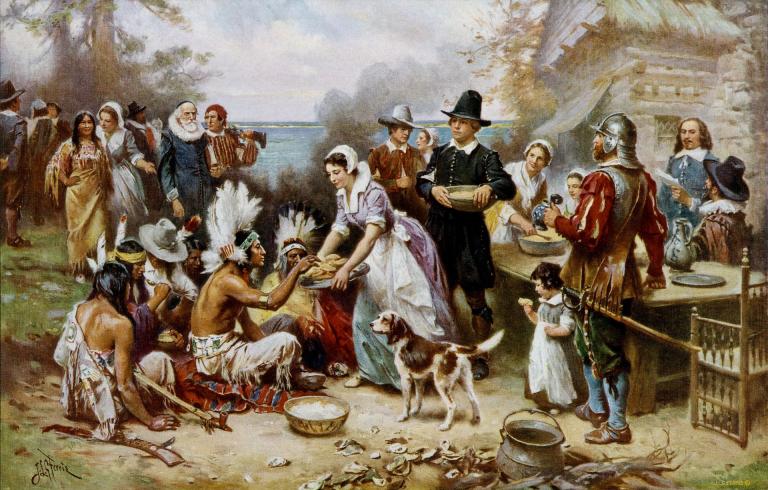
(Wikimedia Commons public domain image)
The term homophobia is modeled upon familar predecessors such as agoraphobia, acrophobia, arachnophobia, and claustrophobia.
I’ll take them in turn:
The word agoraphobia is from the Greek ἀγορά (agorā́), which refers to a “public square,” a “public space,” or a “market,” and φοβία (phobía), which means “fear.” It denotes an extreme, irrational terror of public spaces.
The term acrophobia is from the Greek ἄκρον (ákron), meaning “peak,” “summit,” or “edge,” and φοβία (phobía), which, again, means “fear.” As might be expected, it refers to an extreme or irrational fear of heights.
Arachnophobia is an intense and unreasonable fear of spiders and other arachnids such as scorpions.
The term claustrophobia comes from the Latin claustrum (“a shut-in place”) and, once again, Greek φοβία (phobía), or “fear.”
In my judgment, to use the term homophobia to characterize any and all resistance to every “gay rights” proposal (e.g., the redefinition of marriage to include same-sex couples) suggests that resistance to the normalization or endorsement of homosexual behavior is an illness — an excessive and irrational terror, a psychological defect needing to be treated and/or eradicated, rather than an opinion to be discussed and debated.
Those who have objected to homosexuals being branded as “perverse” and “sick” should think long and hard before they turn that same strategy against everybody who disagrees with their legal and cultural agenda. It disrespects opponents. It dehumanizes and demeans them. It is, in that respect, merely yet another example of the terribly divisive discourse of our time. Those who disagree aren’t mere opponents with whom we disagree; they are evil, depraved, sick, even subhuman.
Now, there may be some who actually “fear” homosexuals. If so, perhaps the word homophobia might fit them. There may be some whose opposition reflects their fear of their own repressed homosexual tendencies. Maybe it would fit them, as well. But the numbers of such people cannot be very large, not absolutely and surely not proportionately.
For people like me – and there are several other people, perhaps millions of people, like me – resistance to the regularization of homosexual behavior doesn’t even arise, in the first instance, from homosexual behavior itself. It flows as an entailment from a more general worldview that is not specifically focused, even secondarily, on homosexuality. And that worldview may or may not be religious.
In my case, it is a compound of both religious and secular considerations: I don’t particularly wish to re-litigate the question of same-sex marriage, for example. But, to my mind, marriage between men and women is prior to the State, both logically and chronologically. Thus, given my strong belief in very limited government and a minimal State footprint, I’m not convinced that the State has the right to redefine marriage — especially via a one-vote majority in a court decision. I remain specifically unconvinced, too, that the Constitution of the United States, reasonably interpreted, demands gay marriage. (My political philosophy includes such concepts as “strict construction” of the Constitution, with close attention to “original intent.”) On the other hand, in fact, I strongly favored civil partnerships that would have granted homosexual couples the legal rights (e.g., hospital visitation and inheritance) typically associated with marriage. Other than my deep sadness when homosexuals forsake the Church, I’m quite uninterested in their private sexual arrangements; I’ve been working harmoniously and respectfully with gay people for decades and will continue to do so.
I won’t approve the suggestion that people holding my views are “sick,” that we would, in principle at least, be suitable candidates for “re-education camps” or reparative therapy. I disapprove of the term homophobia for the same reason that I object to claims that people who are insufficiently enthusiastic toward our Dear Leader suffer from a supposed illness called “Trump Derangement Syndrome,” or that liberal Democrats are indistinguishable from Communists. Such rhetoric is, to put it mildly, unhelpful.
I reject the term homophobia in its wide application for the same reason that I reject charges that failure to support same-sex marriage is evidence of “hate.”
In fact, my objection to the word homophobia isn’t really about homosexuality as such. It’s about civil, respectful discourse. To the extent that there really are anti-gay bigots — and I accept that they still exist — the proper term for them isn’t homophobe. It’s bigot. And to the extent that a person really hates gay people, his attitude should be termed hatred, not homophobia. But such terms should be used accurately, not sprayed about indiscriminately in order to gain unearned rhetorical advantage. They should not be deployed in order to dehumanize opponents.
For relevant further reading, see William O’Donohue and Christine E. Caselles, “Homophobia: Conceptual, definitional, and value issues,” Journal of Psychopathology and Behavioral Assessment 15 (1993): 177–195.












